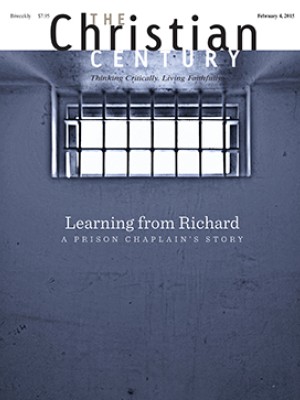Conservative Jews question rules on interfaith weddings, dating non-Jews
In recent weeks, groups within Conservative Judaism—the second-largest movement of American Jews—debated their own rules discouraging interfaith dating and marriage.
A prominent Conservative rabbi asked his Massachusetts congregation to consider allowing him to preside at weddings between Jews and non-Jews as long as the couples were committed to raising Jewish children.
Rabbi Wesley Gardenswartz of Temple Emanuel in Newton, Massachusetts, said he floated the proposal because he wanted to keep families connected to his synagogue.
“This is about our children and our grandchildren, and making sure in this glorious open society that when our children fall in love—with whomever they fall in love—they know they can always come back to their spiritual home,” he said.
Unlike rabbis in Reform Judaism, the largest American stream of Judaism, Conservative rabbis may not preside at interfaith marriages.
“Jewish tradition says Jewish marriage occurs between Jewish people,” said Rabbi Julie Schonfeld, executive vice president of the movement’s Rabbinical Assembly. “As rabbis, our role is to teach, inspire, and promulgate that tradition.”
Schonfeld notes that Gardenswartz and members of his congregation quickly deemed his intermarriage proposal unworkable.
In a religion whose adherents number fewer than 15 million worldwide and whose children feel increasingly free to choose whether or not they will produce a next generation of committed Jews, changes regarding marriage can be fraught with emotion.
That was also the case when the Conservative movement’s youth group, United Synagogue Youth, changed the language in its policy on dating among its teen leaders. The original phrasing calls on USY leaders to “refrain” from dating non-Jews; the new wording speaks of “recognizing the importance of dating within the Jewish community.”
Ben Shapiro, 16, vice president for communications of USY’s Far West region, said the firestorm of criticism after the teens’ vote shocked him. The intention, Shapiro said, was to make the language more inclusive out of respect to USY leaders who have a non-Jewish parent—not to make it more acceptable for USY leaders to date non-Jews.
Read our latest issue or browse back issues.
To Rabbi Rick Jacobs, head of the Union for Reform Judaism, the Conservative movement stands at the same crossroads where the Reform stood about a generation ago. As he put it, an increasing number of Jews are recognizing that “intermarriage is a fact of life, as gravity is.”
In the 1970s, when large numbers of American Jews began choosing non-Jewish partners, the Reform movement’s Central Conference of American Rabbis maintained its official opposition to intermarriage but decided to allow its rabbis to choose for themselves whether to preside at such weddings.
In practical terms, the Reform movement reasons that non-Jewish spouses must be embraced because they can be valued members of the community and partners with their spouses in raising Jewish children.
But there is an opposite line of reasoning: make it easy for people to intermarry, and they will.
According to the Pew Research Center’s 2013 study of American Jews, the more traditional the movement, the more likely its members to marry other Jews. Half of Reform Jews marry Jews, compared with nearly three-quarters of Conservative Jews and 98 percent of Orthodox Jews.
And while 96 percent of Jews married to Jews are raising their children in the Jewish faith, just 20 percent of Jews married to non-Jews are.
Many Jews are aware of that reality, in addition to the prohibition against intermarriage in Jewish law, said Rabbi Avi Shafran, director of public affairs for Agudath Israel of America, an umbrella group of Orthodox Jews.
“It’s unfortunate—no, tragic—that in an attempt to remain relevant, various non-Orthodox Jewish groups have opted to either accept or even encourage intermarriage,” Shafran said. “It is a capitulation to unfortunate social realities.”
For his part, Gardenswartz said he is glad he asked his congregants about presiding at intermarriages. And while they decided they didn’t want to flout the Conservative movement, Temple Emanuel has changed its approach to interfaith couples connected to the synagogue, treating them like Jewish couples in every respect except the marriage ceremony.
“I’m asking all of our sons and daughters and whomever they have chosen as their life partners: ‘Please come back home,’” Gardenswartz said. —Religion News Service
This article was edited on January 21, 2014.





